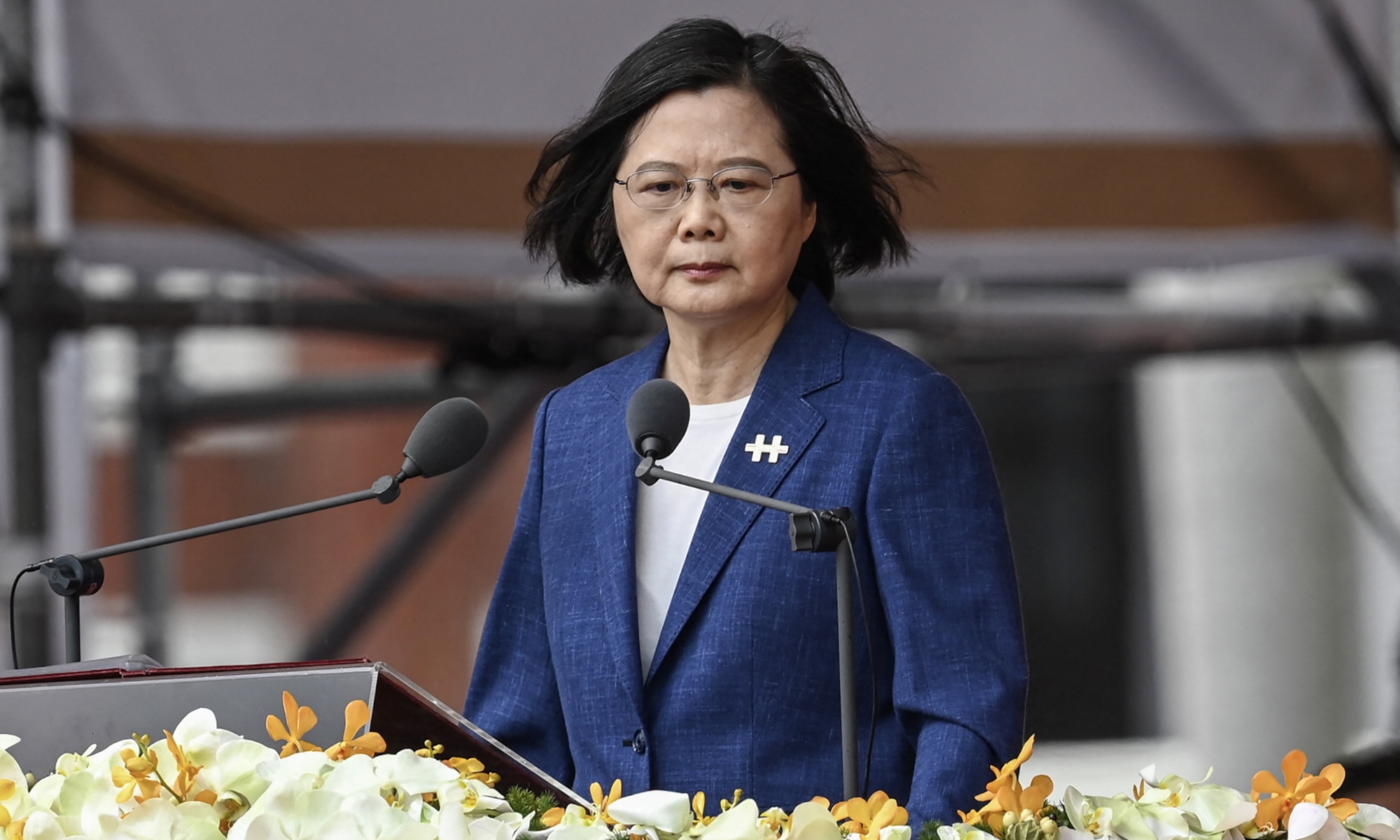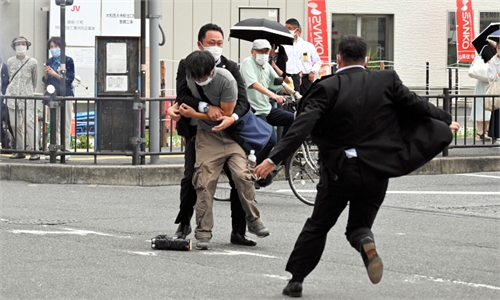Taiwan’s Tsai suspected of violating regional law by flying flags at half-staff to honor Abe

Tsai Ing-wen Photo:AFP
After Taiwan's regional leader Tsai Ing-wen asked for the region's flags on public buildings and schools to be flown at half-mast for half a day on Monday to honor Japan's assassinated former leader Shinzo Abe, voices of doubt arose within the island as objectors questioned the legality of flying the flag at half-staff for Abe, and some accused Tsai's move of breaking local laws.
Tsai said in a tweet on Saturday that she has instructed the island's authorities to fly the region's flag at half-mast on Monday to mourn the passing of Shinzo Abe.
The decision has caused criticism over the validity of flying the flag at half-staff on the island, as the Taiwan region's relevant regulation requires such an act to be only allowed for the death of the current head of one country, or of someone who has made great contributions to world peace and human progress, or special contributions to the island.
"Abe wasn't the current leader of Japan, and Japan doesn't have so-called 'diplomatic ties' with the Taiwan island. Also, he has made no huge contribution to either world peace or Taiwan island's development. Why do they allow the region's flag to be flown at half-staff for him?" questioned a lawyer named Yeh Ching-yuan on Facebook on Sunday.
Yeh said it's Tsai's personal preference to flatter the Japanese government, but she should not violate the legislations in place.
Chang Ya-chung, Sun Yat-sen School President in the Taiwan island, doubted whether Abe's work of helping the region to sell pineapples, donating vaccines and calling for support could be treated as a special or major contribution to the island.
"Many foreign figures have made expressions of support to the island for their own political calculation. Are they all eligible for the flag to be flown at half-staff?" commented Chang, urging Tsai to specifically explain the reasons for such an act to the public.
Cheng-Feng Shih, a professor from the island's Dong Hwa University, pointed out that some Taiwan politicians have an unrequited love affair with Japan. Abe cared most about "collective self-defense" and it's not necessary for Taiwan island to over-interpret Abe's calling the US to end the strategic ambiguity for the Taiwan region.


